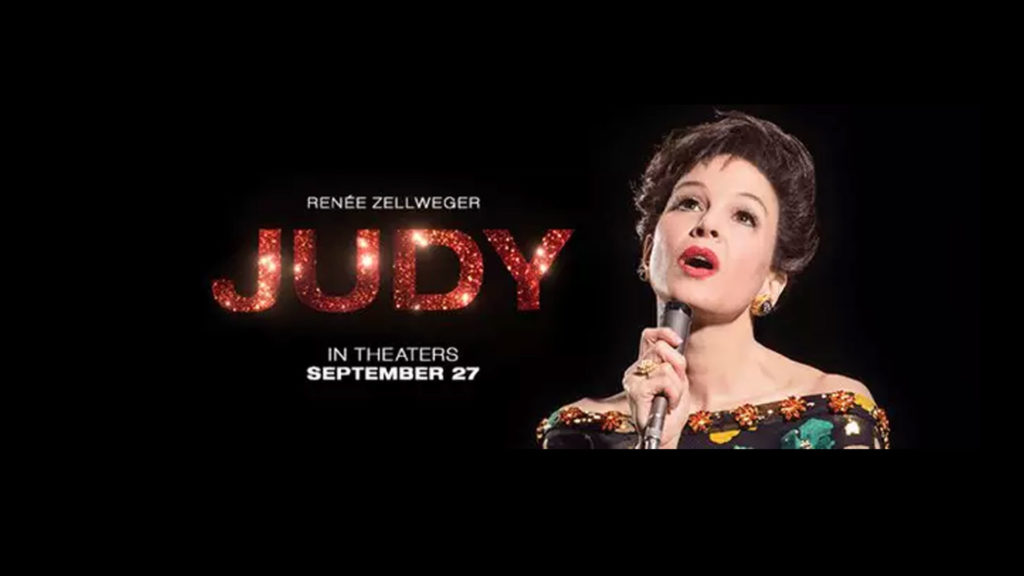For her performance as the late great Judy Garland in ‘Judy’, four-time winner and three-time nominee Renée Zellweger took home the Golden Globe for Best Performance by an actress in a drama. In the film, Zellweger portrays Garland in the last few years of her life, where the childhood trauma caused by her studio caught up to her.
In just the first few minutes of the movie, a young portrayal of Judy Garland, played by Darci Shaw, is told that her voice is what sets her apart from the other girls, which makes her deserving of more than just life as a housewife or mother. Zellweger certainly lives up to this expectation placed on her character, as she did all of her own singing.
To watch her perform ‘Somewhere Over The Rainbow’ live in a theatre packed with extras and crew, as Garland is nothing short of extraordinary, and with every detail and classic Judy Garland mannerism present, it is evident that Zellweger spent a considerable amount of time studying these behaviorisms for her own performance.
Any portrayal of someone struggling with forced drug addiction and lasting eating issues from years of every move being watched and controlled is heartwrenching, especially when she is one of America’s sweethearts. In flashbacks to her star-studded childhood, Judy is berated, fed drugs to suppress appetite, sexually harassed by her superiors, and made to work 18 hour days. Zellweger pieced all of this together and somehow communicated the years of trauma in her every move, which was not only poignant, but mesmerizing.
Viewers can not only hear the brokenness in the delivery of the lines, but can also see it is visibly apparent across her face as Zellweger gave one of the most convincing, thought-provoking, and compelling performances at the 2020 Golden Globes. When Judy is happy the joy can be felt through the screen; when Judy is heartbroken, the audience can feel the pure sadness radiating from Zellweger, and when Judy is frustrated, viewers feel the fire in their own hearts as well.
Zellweger extends to viewers who have never thought twice about Judy Garland, a feeling of deep sorrow for troubles plaguing her life as well as her untimely passing. Garland’s daughter Liza Minelli, also portrayed in the movie, expressed her distaste and lack of permission for the project on social media, and while the movie could be seen as putting Judy in a bad light, it definitely puts her courage, strength, and undue hardships in a front-row seat. It illuminates Garland as a star, who was ruined by the smear of corruption and lack of human compassion shown to her in her childhood while also showing viewers her pure intentions of wanting to regain custody of her kids and be freed from the shackles of stardom.
The hysteria and desperation of Garland is felt palpably as towards the end of the movie, Zellweger looks dead into the camera in the audience and shouts “I always have a beautiful show for you! Always!” while the audience laughs and heckles at the obviously unstable singer and actress.
A quote from Judy Garland herself summarizes Renée Zellweger’s performance, or rather the way she translates her characters hardships to the audience, “If I am a legend, then why am I so lonely?”
Though the actress was put in a category against other fantastic actresses with memorable roles, Zellweger was absolutely deserving of the win, exposing audiences to the underbelly of the downward spiraling career and life of icon Judy Garland, and showing a side of the story that was lost but always meant to be seen.


One thought on “Welcome to the Golden Globes: Renée Zellweger for Best Performance by an Actress in a Motion Picture – Drama”